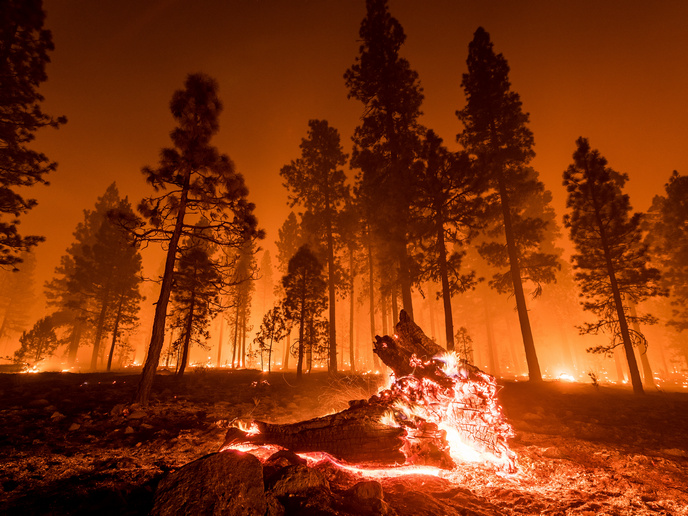Global network for building resilient landscapes launched ahead of UN climate change conference
A new initiative called the Wildfire-Resilient Landscapes Network was established on 30 November 2023, at the start of the UN’s 28th meeting of the Conference of the Parties (COP28). The launch took place at a reception attended by His Majesty King Charles III in Dubai where the 2-week-long climate summit was held. The Wildfire-Resilient Landscapes Network is a joint initiative between the Circular Bioeconomy Alliance and the Commonwealth Secretariat, and combines scientific and indigenous knowledge on wildfires to create resilient landscapes. It will be coordinated by the EU-funded FIRE-RES project, which will contribute its scientific knowledge, and the International Savanna Fire Management Initiative (ISFMI), whose contribution will be in the form of unique indigenous knowledge and experience in wildfire risk management. “Reigniting Indigenous fire management practices is an opportunity to share our knowledge with the world, to secure all of our futures and bring us together,” comments ISFMI Advisory Committee member Cissy Gore-Birch in a news item posted on FIRE-RES’s website. The knowledge brought together through the network will be used to develop living labs that will demonstrate how to create fire-resilient landscapes in fire-prone areas around the world. In addition, innovative financial tools, such as those revolving around nature markets, will be developed in collaboration with the finance industry to help generate the investments needed to enable a global transition to resilient landscapes.
When current methods no longer work
But why are such financial tools needed? As proven by the unprecedented wildfires our planet has recently experienced, current fire suppression methods have reached their limits. Also, government subsidies provided for wildfire prevention and landscape management are not sufficient to deal with the enormous problem the world is facing. We therefore also need private funding to make the most of new technologies and forge new paths towards resilient landscapes. “This alliance will allow the development and implementation of new legal frameworks to boost the creation of innovative financial instruments that, through private capital, will complement the traditional public funding to support land management,” states Antoni Trasobares, the director of FIRE-RES project coordinator Forest Science and Technology Centre of Catalonia, Spain. “Through its participation in the Wildfire-Resilient Landscapes Network, FIRE-RES may expand its activity beyond its current network of living labs, for instance to Australia, South Africa, or Canada, while consolidating as well the upscaling approaches through innovative financial tools.” Circular Bioeconomy Alliance CEO Marc Palahí remarks: “We are honoured to host this network which will build on the success of our Living Labs and connect the dots between science, indigenous knowledge, and the financial sector to enable a holistic approach to creating wildfire-resilient landscapes. As leaders gather to agree climate action at COP28, the start of this collaborative endeavour will facilitate vital progress on the ground that works to embed resilience, while contributing to nature protection as well as climate adaptation and mitigation efforts.” FIRE-RES (Innovative technologies and socio-ecological-economic solutions for fire resilient territories in Europe.) is developing a holistic and integrated fire management strategy to address extreme wildfire events in Europe in 11 living labs located in Bulgaria, Chile, France, Germany, Greece, Italy, the Netherlands, Portugal, Spain and Sweden. The 4-year project ends in 2025. For more information, please see: FIRE-RES project website
Keywords
FIRE-RES, fire, wildfire, resilient, Wildfire-Resilient Landscapes Network, indigenous, landscape, climate



